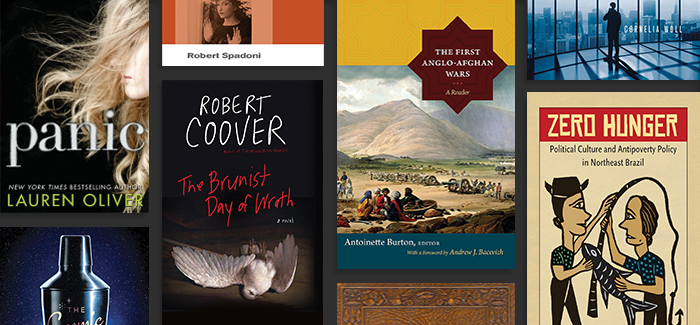
A Pocket Guide to Analyzing Films
Robert Spadoni, PhD’03
Author
Why just sit back and watch a movie when a closer look can reveal intricate patterns and deeper meaning? A Pocket Guide to Analyzing Films combines written explanations with nearly 200 images—including stills from Stagecoach, Psycho, Groundhog Day, and other staples of American cinema—to help students and movie lovers decode a film’s many artistic elements, from narrative and character development to cinematography, editing, and sound.
The Power of Inaction: Bank Bailouts in Comparison
Cornelia Woll, AB’99, AM’00
Author
The bank bailouts following the 2008 financial crash were some of the most controversial public policy decisions in recent history. But what was the financial industry’s role, and how did it affect the legislation’s outcomes? Cornelia Woll looks beyond typical lobbying-focused criticisms to examine how the financial industry’s behavior influenced government bailouts in three pairs of countries: the United States and United Kingdom, France and Germany, and Ireland and Denmark.
The Cosmic Cocktail: Three Parts Dark Matter
Katherine Freese, PhD’84
Author
Dark matter and dark energy make up an estimated 95 percent of the known universe, yet they remain one of modern science’s most enduring enigmas. Research physicist Katherine Freese tells the inside story of the epic quest to understand these elusive particles—from the early predictions and discoveries of scientists such as Fritz Swicky, who coined the term “dark matter” in 1933, to the deluge of data from today’s laboratories, satellites, and particle accelerators.
The Brunist Day of Wrath
Robert Coover, AM’65
Author
The Brunist Day of Wrath is Robert Coover’s behemoth of a sequel to The Origin of the Brunists, published in 1966. Despite nearly a half-century gap between the two novels (during which Coover wrote 14 other novels, three books of short fiction, and a collection of plays), Wrath is set only five years later. A critique of religious fundamentalism, the books chronicle the development of the Brunist cult in the fictional Midwest coal town of West Codon.
Zero Hunger: Political Culture and Antipoverty Policy in Northeast Brazil
Aaron Ansell, AM’02, PhD’07
Author
As the host of the 2014 World Cup and 2016 Summer Olympics, Brazil has become a recent fixture in the global spotlight. Aaron Ansell’s ethnographic study assesses President Lula’s flagship antipoverty program, Zero Hunger (Fome Zero), and its impact on the northeastern state of Piauí. Ansell argues that “intimate hierarchies” between the poor and the elites, which officials sought to dismantle, facilitate the participation of all citizens in the political process.
The First Anglo-Afghan Wars: A Reader
Antoinette Burton, AM’84, PhD’90
Editor
Long before Operation Enduring Freedom, Afghanistan was a battleground for the British Empire, which fought to expand its influence in Central Asia and defend its colony in India. Antoinette Burton sheds light on the first two Anglo-Afghan wars by presenting 26 primary source materials from 1817 to 1919, including travel writings, newspapers, intelligence reports, diaries, and poems. The collection represents women and non-Westerners along with well-known historical figures.
Panic
Lauren Oliver, née Laura Schechter, AB’04
Author
How far would you go for a chance at your dream life? In her latest novel, New York Times best-selling author Lauren Oliver transports readers to Carp, a dead-end rural town of 12,000 bored, hopeless residents. Panic is an annual contest reminiscent of the Hunger Games, in which high school seniors, like protagonists Heather and Dodge, risk life and limb for a cash jackpot. Portraying the intensity of fear combined with excitement, Panic also explores the need to belong.
